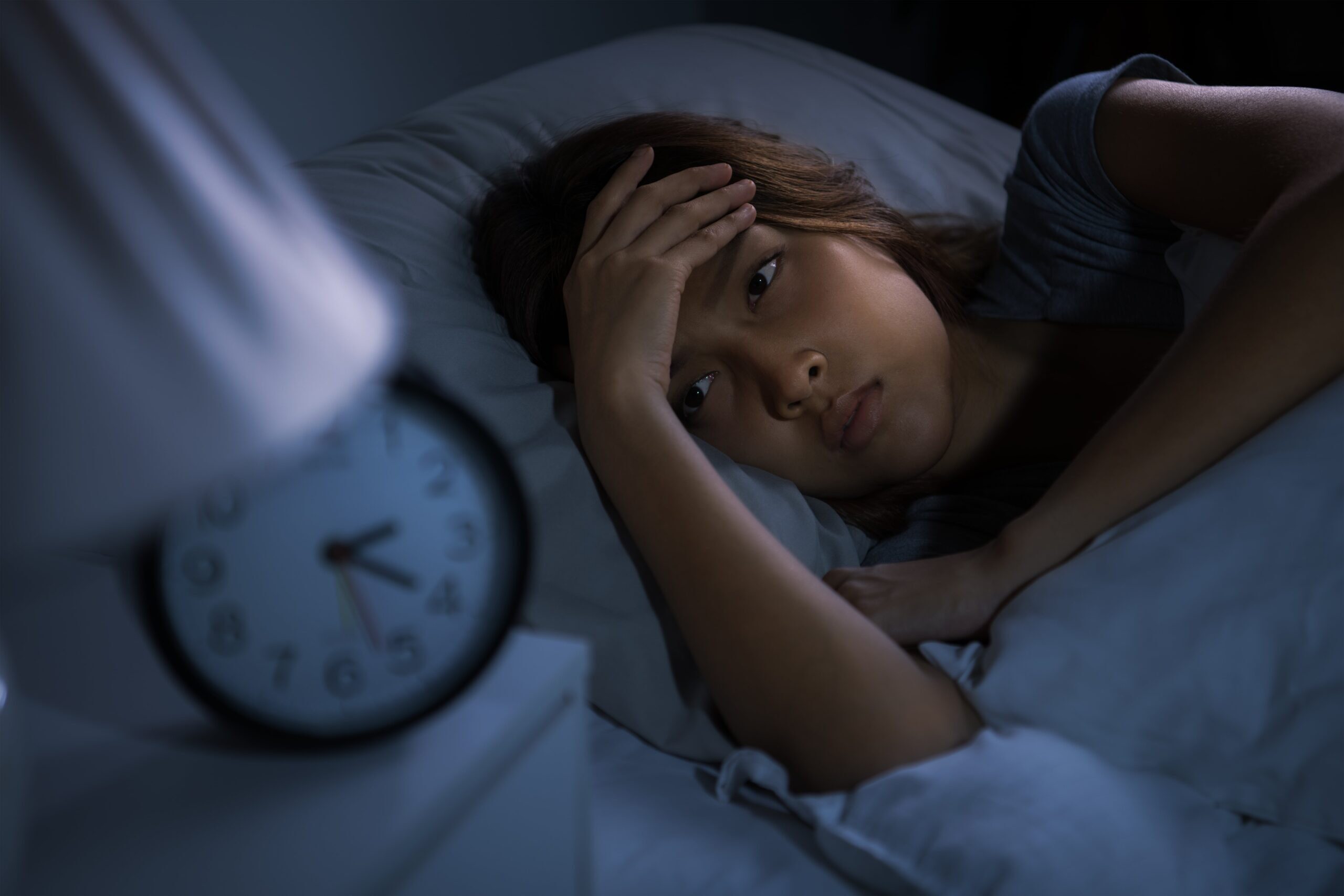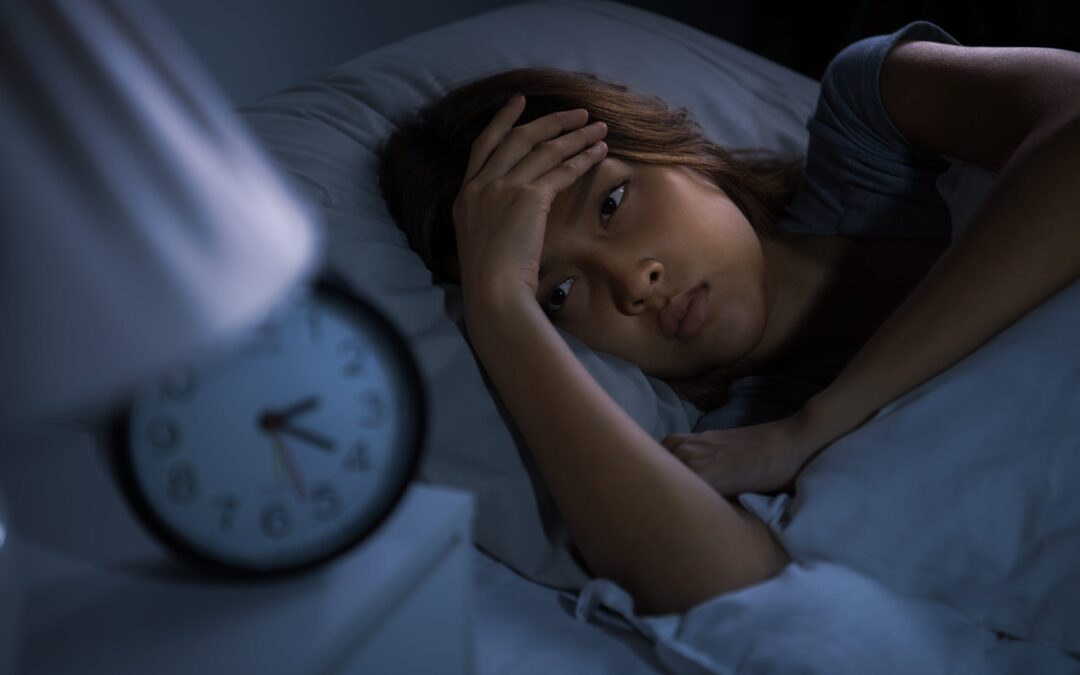
PhotoCredit_amenic181_Shutterstock
Magnesium vs melatonin, the two most popular sleep aids are evaluated in this head to head competition. Which one is the best sleep aid for you? We’ll also discuss 2 other combination sleep aids that have been shown to help many insomniacs to get a better night’s rest.
How Magnesium Helps You Sleep
Magnesium plays a crucial role in supporting sleep by calming the nervous system and relaxing muscles. It also helps regulate neurotransmitters that are involved in the sleep-wake cycle.
Importance in the Body
Magnesium is essential for over 300 biochemical reactions in the body. It helps regulate nerve and muscle function, supports a healthy immune system, and maintains bone strength.
In terms of sleep, magnesium acts as a natural relaxant, reducing stress hormones and damping down the nervous system. This makes it easier to fall asleep and helps achieve a deeper stage of sleep. GABA, a neurotransmitter important for sleep, is regulated by magnesium. It activates the parasympathetic nervous system, which promotes relaxation.
Dietary Sources
Consuming magnesium-rich foods can support better sleep through a natural dietary approach. Green leafy vegetables such as spinach and Swiss chard are excellent sources.
Other foods high in magnesium include nuts, seeds, and whole grains. Almonds, pumpkin seeds, brown rice, and quinoa offer ample magnesium content. Incorporating these into a balanced diet can help ensure adequate magnesium levels. Dark chocolate is another source, providing a sweet way to boost intake.
Recommended Daily Intake
The recommended daily intake of magnesium varies by age, sex, and life stage. Adult men require 400-420 mg daily, while adult women need 310-320 mg.Pregnant women have slightly higher needs. To meet these needs, a varied diet should suffice for most people.
For those with insufficient dietary intake, supplements can be considered, but it’s crucial to consult a healthcare provider to avoid excessive intake, which could lead to potential side effects such as diarrhea or nausea.
How Melatonin Helps You Sleep
Melatonin is a hormone that plays a crucial role in sleep regulation. It is often used as a supplement to address sleep issues, but its long-term effects require consideration.
Function in Sleep Regulation
Melatonin is produced by the pineal gland in response to darkness. It helps regulate the sleep-wake cycle by signaling the body that it is time to prepare for sleep.
This hormone works by influencing the timing of circadian rhythms, making one feel sleepy at night. This natural process adjusts the internal body clock, aligning sleep patterns with night and day.
The efficacy of melatonin in sleep regulation is particularly evident in conditions like jet lag or shift work. In these situations, melatonin provides support by assisting in the adjustment of the body’s internal clock. This function is crucial for maintaining a healthy sleep pattern.
Supplementation and Usage
Melatonin is available as an over-the-counter supplement. It is commonly used to manage sleep conditions like insomnia or disturbances related to jet lag.
The typical dosage can range from 1 to 10 milligrams, depending on individual needs and medical advice. Users often take it 30 minutes before bedtime.
A key consideration in supplementation is ensuring the timing and dosage are appropriate for the individual’s specific sleep issues. This approach maximizes benefit and minimizes side effects. Healthcare professionals often recommend starting with a low dose and adjusting as needed.
Risk of Long Term Melatonin Use
The long-term use of melatonin supplements raises potential concerns that need attention. While it’s generally considered safe for short-term use, the effects of continued usage are less understood.
Prolonged supplementation may alter natural melatonin production, leading to dependency. Some users report side effects such as dizziness or nausea, though these are typically mild. Additionally, research is still examining its impact on various age groups, including children and older adults.
It is advisable for individuals considering long-term use to consult healthcare providers. This ensures proper guidance and monitoring, and it mitigates potential risks associated with extended supplementation.
More Effective Sleep Aids than Melatonin and Magnesium
MDsleep supplements combine ingredients that research suggests may promote more restful sleep than standalone options like melatonin or magnesium. These products are formulated with different compounds aiming to enhance the overall sleep experience.
Clinically Proven MDsleep +hemp Sleep Aid
MDsleep +hemp Sleep Aid integrates cannabinoids with traditional sleep-promoting ingredients to potentially improve sleep quality and duration. Cannabinoids such as CBD are noted for their calming effects, which could enhance relaxation before bedtime. This supplement typically includes herbs like valerian root and chamomile, known for their sedative properties.
The formulation emphasizes a holistic approach by combining natural elements to address different causes of insomnia. Users often report a gradual improvement in sleep consistency and the ability to sleep through the night without interruptions. The combination aims to tackle both anxiety-related sleep issues and physical discomfort, enhancing the chances of a restful night.
MDsleep Botanical Sleep Aid (Hemp Free)
MDsleep Botanical Sleep Aid (Hemp Free) is a carefully crafted formulation that focuses on herbal components devoid of cannabinoids. This version caters to individuals preferring or requiring hemp-free supplements. Key ingredients might include L-theanine and lemon balm, both recognized for their calming properties.
Users often find this formulation beneficial for improving sleep latency and quality. The blend targets stress reduction and promotes relaxation, making it easier to unwind. This balanced mix of ingredients is particularly valuable for those looking for a non-hemp solution to enhance their nightly rest, focusing on the tranquil effects of plant-based components.
Shop MDsleep
Find sleep aids that were designed by doctors and validated by research.
Comparative Absorption and Bioavailability
The absorption mechanics of magnesium and melatonin are crucial for assessing their effectiveness in sleep support. Understanding these mechanisms highlights how these compounds are utilized by the body.
Magnesium Absorption Pathways
Magnesium absorption occurs primarily in the small intestine through both passive and active transport mechanisms. The active transport involves a transcellular route facilitated by magnesium channels such as TRPM6 and TRPM7. Dietary factors significantly influence magnesium absorption rates. For instance, dietary phytates and oxalates can impede absorption, whereas proteins and medium-chain fatty acids enhance it.
Magnesium’s bioavailability is also affected by the form in which it’s consumed. Magnesium citrate and magnesium chloride are generally absorbed more effectively compared to other forms like magnesium oxide. The body’s magnesium stores play a role, as lower levels can lead to higher absorption efficiency.
Melatonin Absorption Dynamics
Melatonin is readily absorbed through the gastrointestinal tract due to its lipophilic nature, allowing for swift transport across cellular membranes. It shows rapid plasma peak levels, typically within 20 to 40 minutes of ingestion. Bioavailability of orally ingested melatonin ranges broadly due to first-pass metabolism in the liver.
The effectiveness of melatonin can be affected by its formulation. Sublingual tablets may result in quicker systemic availability compared to standard oral tablets, bypassing some of the hepatic processing. Factors such as diet or concurrent medication can alter absorption rates, impacting melatonin’s efficacy in regulating sleep patterns.
Melatonin and Magnesium Side Effects
Both melatonin and magnesium can offer sleep benefits, but each has its own set of side effects and interactions. It’s essential to understand these factors when considering their use to promote better sleep.
Magnesium Side Effects
Magnesium is generally considered safe but may lead to side effects, especially at high doses or for individuals with certain health conditions. The most common side effects include digestive issues such as diarrhea, nausea, and cramping. These are often related to the form of magnesium used, like magnesium oxide, which may be more likely to cause such symptoms.
People with kidney disease should consult their healthcare provider before taking magnesium supplements, as their body may not efficiently eliminate excess magnesium. In rare cases, very high doses can lead to symptoms like low blood pressure, confusion, or heart rhythm disturbances.
Melatonin Interactions and Contraindications
Melatonin is known for helping regulate sleep-wake cycles, but it can have side effects and interact with various medications. Typical side effects include dizziness, daytime drowsiness, and headaches. These are usually mild but can become pronounced if excessively high doses are used.
Those considering melatonin should also be aware of its interactions. It may interfere with blood thinners, immunosuppressants, and diabetes medications. Individuals with autoimmune diseases or depressive disorders should seek medical advice before taking melatonin. Pregnant or breastfeeding women are also advised to consult healthcare professionals before using melatonin.
Clinical Research and Studies
Magnesium and melatonin have been widely studied for their roles in promoting sleep. These studies focus on their effects on sleep quality, duration, and onset, providing valuable insights for those considering supplements for sleep improvement.
Evidence of Magnesium’s Efficacy
Research indicates that magnesium plays a significant role in enhancing sleep quality. It helps in reducing the time it takes to fall asleep and improves relaxation. Studies report that magnesium supplementation can decrease the time to sleep onset by approximately 17 minutes compared to a placebo.
For individuals experiencing insomnia, magnesium has been shown to encourage better sleep by influencing GABA receptors in the brain, which help calm neural activity. Older adults, often facing challenges with sleep, have particularly benefited from magnesium supplementation. It seems to improve not only sleep duration but also sleep quality, making it a valuable aid for sleep disorders.
Studies on Melatonin’s Effectiveness
Melatonin has been studied extensively for its impact on the body’s circadian rhythm, which regulates the sleep-wake cycle. In clinical settings, melatonin is commonly used to reset sleep patterns, especially in cases of jet lag or shift work. Its ability to signal the body to prepare for sleep makes it a preferred option for those needing sleep cycle adjustments.
Research demonstrates that melatonin can significantly improve sleep onset and overall sleep duration. When melatonin is combined with other supplements like magnesium or zinc, the effectiveness for improving sleep becomes even more pronounced. This is particularly beneficial for older adults or those experiencing severe sleep disruptions. The versatility of melatonin makes it a widely recommended option for those looking to enhance their sleep quality.
Frequently Asked Questions
Magnesium and melatonin serve distinct roles in improving sleep health. While magnesium aids relaxation and stress management, melatonin regulates the sleep-wake cycle.
What are the benefits of taking magnesium for sleep?
Magnesium helps to relax muscles and reduce stress levels. It can also support nerve function and promote overall calmness. Many people find that supplementing with magnesium results in more restful sleep and improved anxiety management, which can indirectly benefit sleep quality.
How does melatonin work to regulate sleep, and what are its benefits?
Melatonin is a hormone that regulates the body’s circadian rhythm. It signals to the body that it is time to prepare for sleep. Supplementing with melatonin can be particularly useful for adjusting to new time zones, managing sleep disorders, or improving sleep onset.
Can taking both magnesium and melatonin together improve sleep quality more than either alone?
Using both supplements together may enhance sleep quality for some individuals. The relaxation benefits of magnesium combined with melatonin’s regulatory effects on the circadian cycle could offer a more comprehensive approach to sleep improvement. However, personal needs may vary, and consulting with a healthcare provider is advisable.
What type of magnesium is most effective for managing sleep disorders and anxiety?
Magnesium glycinate and magnesium citrate are commonly recommended for sleep and anxiety. These forms are known for their high absorption and calming effects on the body. Individuals should choose a type that aligns with their personal health needs and consider discussing with a healthcare professional.
Are there any known side effects associated with taking melatonin and magnesium concurrently?
When taken together, magnesium and melatonin are generally safe for most adults. However, potential side effects can include gastrointestinal issues or drowsiness. Both should be used cautiously, particularly in those with underlying health conditions, or when used with other medications.
How can magnesium and melatonin be safely incorporated into a child’s sleep routine?
For children, it is essential to follow pediatric guidance when introducing these supplements. Starting with low doses and monitoring for any adverse reactions is recommended. Consultation with a healthcare provider can provide a tailored approach based on the child’s specific sleep needs and age.
Read Next
Types of Sleep Aids
Explore a comprehensive overview of sleep aids, from over-the-counter and prescription medications to natural remedies and sleep hygiene tips. Learn about the benefits, risks, and side effects of common sleep solutions, with guidance on choosing what’s right for you.
Read more
Best Cannabis for Sleep Guide
This resource reviews various cannabis-based sleep solutions, explaining how cannabinoids like THC, CBD, and CBN interact with the body to promote better rest. It provides insights into product types, dosing, and what to consider when choosing cannabis for sleep.
Read more
CBN vs. CBD vs. CBG for Sleep Guide
Discover the differences between CBN, CBD, and CBG, three cannabis-derived compounds, and how each may affect sleep quality. The page compares their unique properties, potential benefits, and which might be most effective for sleep support.
Read more
Best Over-the-Counter Sleep Aids Guide
Learn about the most effective over-the-counter sleep aids, including their active ingredients, usage tips, and potential side effects. The guide helps you choose safe and suitable options for occasional sleeplessness or travel-related disruptions. With so many over the counter sleep aids to choose from, find out which ones actually work.
Read more
Guided Sleep Meditation (Audio)
Experience a doctor-designed guided audio sleep meditation that promotes relaxation by progressively releasing tension throughout your body and calming your mind. Visualizations and affirmations help ease you into restful sleep, making it ideal for anyone seeking a peaceful bedtime routine.
Read more
Shop MDBio Nutraceuticals for Sleep, Anxiety Relief, and Pain Relief
Browse MDBio Wellness’s full collection of natural supplements, including sleep aids formulated with botanicals and hemp blends. Each product is designed to support your central nervous system and promote overall well-being without harsh side effects.
Read more

Kia Michel, MD
Physician
Kia Michel, MD is an urologist and staff surgeon at Cedars-Sanai Medical Center in Los Angeles. As a founding member of Comprehensive Urology in Beverly Hills, he believes in treating all aspects of a patient’s wellbeing in order to achieve optimal health. After 25 years in private practice, Dr. Michel believes that a good night’s sleep is essential to maintaining your health, which inspired him to co-create the MDsleep community and the Sleep Doctors Blog.
What Our Readers Say
“Thanks to the insightful articles, I’ve finally managed to get back to my old sleep routine. I feel more rested and energetic each day!”
“The blog’s advice on sleep hygiene has been a game-changer for me. I never realized how small changes could make such a big difference.”
“I struggled with insomnia for years, but the tips I found here have helped me sleep through the night consistently. Thank you!”
“I no longer feel like a zombie from The Walking Dead series! I finally have my life back.”
Stay Updated with Our Newsletter
Join our community of sleep enthusiasts! Subscribe to receive the latest blog posts and exclusive sleep tips straight to your inbox.


